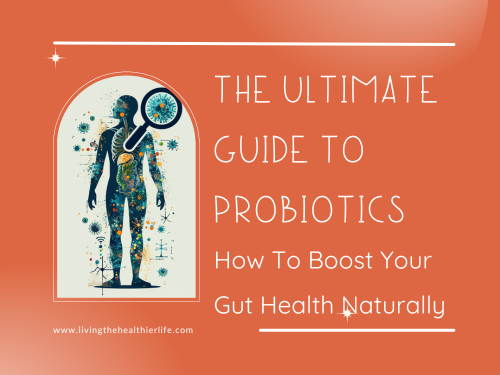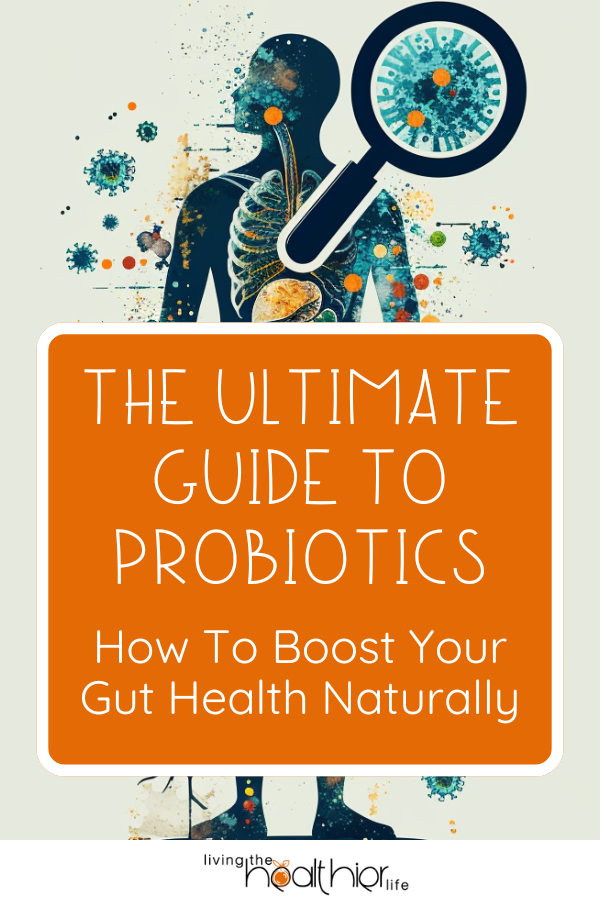Probiotics, prebiotics, bacteria, boosting gut health. Are these all just trendy terms or something you need to know about? Well, in short, it’s the latter. But perhaps you need more convincing. If you are new to gut health and want to know what it means, read on for our guide to probiotics and how you can use them to improve your gut health.
Disclaimer: This article contains affiliate links, which means we receive compensation if you buy after clicking on our links.

What Are Probiotics?
It seems strange to think about bacteria living inside us. Don’t we try to get rid of bacteria at home or in hospitals? However, not all bacteria are bad. Some are good—or beneficial, as the experts might say. Beneficial bacteria can boost our digestion, strengthen our immune system, and help fight the “bad” bacteria that get inside us.
That’s where probiotics come in. Probiotics are living microorganisms with several interesting health benefits. They help balance the bacteria in our gut, boosting the good ones. The best news? Improving gut health isn’t complicated. You can find probiotics in everyday foods like yogurt, kefir, or sauerkraut. By adding these to your diet, you can enjoy benefits like improved digestion and general well-being.
The Health Benefits of Probiotics
Adding probiotics to your diet can offer more than just digestive relief—they’re quite powerful. Probiotics enhance how well we absorb nutrients, ensuring our bodies get the most from our meals. They also play a crucial role in our immune system by maintaining a healthy balance of bacteria in our gut, which keeps harmful bacteria at bay.
Furthermore, there’s a growing body of research suggesting a link between gut health and mental health. Taking care of our gut with probiotics may also promote better mental well-being.
Incorporating probiotics into your diet is a simple yet effective way to boost your health. You can get it from foods like yogurt and kefir or from a supplement. Either way, they’re a small addition that can make a significant difference.
Natural Sources of Probiotics
There is something appealing about the simplicity of getting probiotics from food. Choosing foods rich in probiotics is a natural way to boost your gut health, and these foods often come packed with other nutrients that help as well. Here’s where you can find them:
- Yogurt: Choose yogurts with “live and active cultures” listed on the label.
- Kefir: Like a drinkable yogurt, kefir is rich in lactobacilli and bifidobacteria.
- Sauerkraut: Just fermented cabbage and salt, sauerkraut is also a good source of vitamins C and K.
- Kimchi: This spicy Korean dish is made from fermented vegetables like cabbage, seasoned with various spices.
- Miso: A paste made from fermented soybeans, salt, and koji fungus, used primarily in Japanese cooking.
- Tempeh: A fermented soybean patty, tempeh is a dense source of protein and a staple in many vegetarian diets.
Adding these foods to your existing meal plan can be a simple way to help your digestive system and overall health. Each option offers unique flavors and benefits, which makes it easy to enjoy the advantages of probiotics every day. Perhaps you’ll want a bowl of yogurt for breakfast, or maybe you’ll include sauerkraut with your dinner. Natural sources are a fast and easy way to support your gut health.
Supplements vs. Food Sources: Which Is Best?
If you’re new to gut health, you might feel torn about whether to use supplements or food sources. It can seem confusing at first.
Supplements are straightforward—they provide a high concentration of probiotics in a quick, convenient form. So, supplements might be right for you if you have a busy lifestyle and don’t always stick to a balanced, healthy diet. We recommend The Complete Gut Repair, which you can buy from Happy Mammoth (use the code HORMONE20 for 20% off your order).
However, natural food sources like yogurt, kefir, and sauerkraut have an added benefit. They also deliver a variety of other nutrients that support overall health. Alternatively, you can use both supplements and food sources to maximize the impact on your health.
Boosting Probiotics Benefits Through Simple Lifestyle Changes
There is more to be gained from probiotics than simply consuming them. Changes to your lifestyle can support your survival and growth in your gut. Here are a few tips to help you.
- Eat plenty of fiber: Fiber-rich foods like fruits, vegetables, and whole grains act as prebiotics, nourishing your beneficial bacteria.
- Stay hydrated: Keeping up with your water intake helps keep your digestive system moving smoothly.
- Manage stress: High stress can disrupt your gut flora, so finding ways to relax is essential.
- Be mindful of antibiotics: Antibiotics upset our gut bacteria. If you use them, it’s because they’re necessary, so don’t stop taking them. But be mindful about maintaining a healthy diet during and after an antibiotic course.
By adopting these habits, you’re supporting your probiotics and enhancing your overall digestive health.
Wrapping Up: It’s Surprisingly Easy to Boost Gut Health Naturally
In conclusion, understanding and utilizing probiotics can significantly boost gut health naturally. By incorporating probiotic-rich foods, adding some high-quality supplements, and including mindful lifestyle choices into your daily routine, you can enhance your overall well-being and ensure your digestive system operates at its best.
Pin This Post

